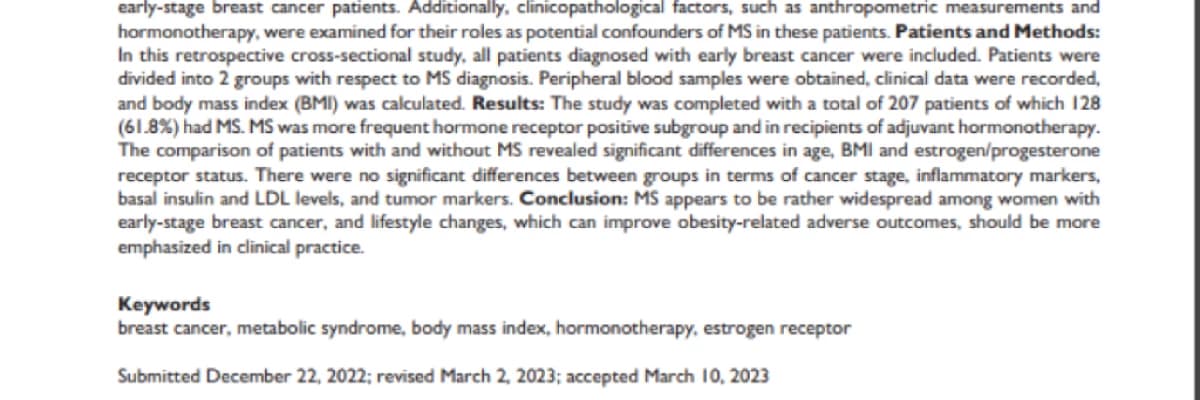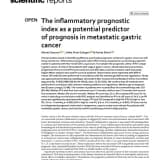The Close Relationship Between Metabolic Syndrome and Hormone Receptor Positive Early Stage Breast Cancer

Objective: The primary aim of the current study was to investigate the frequency of metabolic syndrome (MS) in early-stage breast cancer patients. Additionally, clinicopathological factors, such as anthropometric measurements and hormonotherapy, were examined for their roles as potential confounders of MS in these patients. Patients and Methods: In this retrospective cross-sectional study, all patients diagnosed with early breast cancer were included. Patients were divided into 2 groups with respect to MS diagnosis. Peripheral blood samples were obtained, clinical data were recorded, and body mass index (BMI) was calculated. Results: The study was completed with a total of 207 patients of which 128 (61.8%) had MS. MS was more frequent hormone receptor positive subgroup and in recipients of adjuvant hormonotherapy. The comparison of patients with and without MS revealed significant differences in age, BMI and estrogen/progesterone receptor status. There were no significant differences between groups in terms of cancer stage, inflammatory markers, basal insulin and LDL levels, and tumor markers. Conclusion: MS appears to be rather widespread among women with early-stage breast cancer, and lifestyle changes, which can improve obesity-related adverse outcomes, should be more emphasized in clinical practice. Keywords breast cancer, metabolic syndrome, body mass index, hormonotherapy, estrogen receptor

